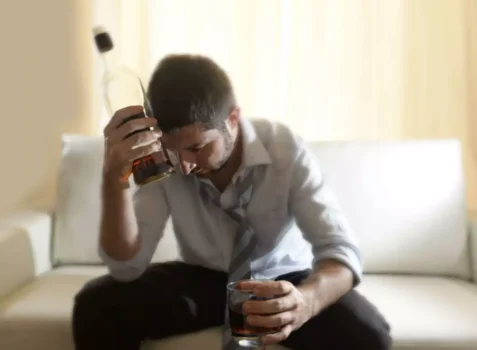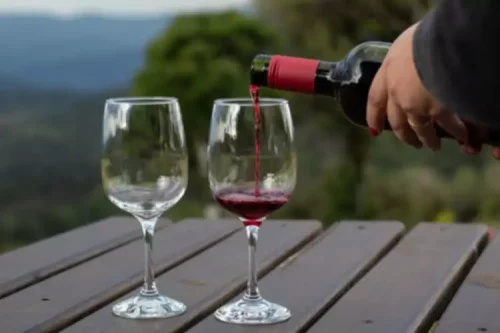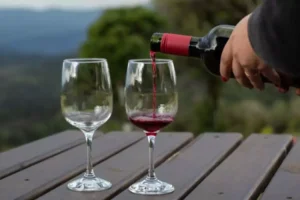Best Addiction Books 92 books

Moehringer is a captivating memoir that delves into the author’s coming-of-age story in a Long Island bar. This poignant and humorous book provides a raw and honest portrayal of the author’s journey growing up without a father figure, seeking guidance and wisdom from the colorful characters in the bar. It’s a heartwarming and sometimes heartbreaking account of finding a sense of belonging and understanding in a community of misfits and mentors.

Days to a New Relationship with Alcohol
Quit Like a Woman is her informative and relatable guidebook to breaking an addiction to alcohol. These books are valuable resources for professionals working with individuals facing alcoholism and related issues. They offer evidence-based insights, personal stories, and practical guidance to enhance their understanding and approaches to treatment. With decades of experience in addiction, the authors present a comprehensive examination of alcoholism, dispelling common myths and shedding light on the realities of this pervasive disease. This life-saving guide offers a compassionate and evidence-based approach to understanding alcoholism and its impact on individuals and families. Employing an integrative, 7-step program for addiction, The Addiction Recovery Skills Workbook helps readers to better understand the roots of their substance misuse issues.
Stash: My Life in Hiding

The Unexpected Joy of Being Sober explores the role alcohol plays in our world and insights from top neuroscientists and psychologists about why we drink. Discussing alcohol’s impact on our health and minds, author Catherine Gray illustrates how a sober life can truly be intoxicating. Exploring the thoughts of an addict and a life unraveled by narcotics, this memoir spans the author’s struggles with opioid use disorder, to her time in jail, and ultimately to her recovery. High Achiever offers hope and inspiration and a raw and page-turning read.

The Biology of Desire: Why Addiction Is Not a Disease by Marc Lewis
Like many women, Clare Pooley found the juggle of a stressful career and family life a struggle, so she left her successful career to look after her family…. Alcohol Explained is the definitive, ground-breaking guide to alcohol and alcoholism. It explains how alcohol affects human beings on a chemical, physiological, and psychological level, from those first drinks right up to chronic alcoholism…. Like Hepola, I Sobriety loved the excitement of the whole bar scene, and quite often, drank until I blacked out. Trying to blackout things from my childhood that caused me so much anxiety and pain. And then having to remember and heal from it all when I got sober.
- The following are a smattering of the books about alcoholism I’ve found meaningful.
- DUIs, “drunkorexia” (choosing to limit eating to consume greater quantities of alcohol), and health problems connected to drinking are all rising—a problem exacerbated by the alcohol industry itself.
- I am not sure I’d be sober today if it weren’t for Tired of Thinking About Drinking.
- At around 100 pages, this is the shortest book that I will have to re-read because of Jung’s deep, aphoristic style.
if you don’t read this I’ll brandish a bread knife
Alcoholism can be defined as an addiction to alcohol that causes damage to the psyche, mood, relationships, brain and other organs of the body, such as the liver. An individual can be said to be an alcoholic when they create a dependence towards alcohol and this dependence does not diminish with time, but, on the contrary, becomes stronger. Addictions are a public health problem, approached from an integral point of view and involving a great variety of institutions and individuals. Given the multiple negative consequences it generates, we know that it is very important to study and understand it.
- Readers appreciate the author’s sympathetic yet clinical approach.
- The issues are presented in a highly readable format, understandable to anyone.
- The book about alcoholics is written in a conversational and engaging style, making it accessible to anyone seeking a new approach to regaining control over their drinking habits.
- Sarah’s writing is sharp and relatable; a more recent, modern voice in the recovery space.
- It’s a tough book to read due to the descriptions of horrific traumas people have experienced, however it’s inspirational in its message of hope.
- It was recommended to me when I only had about 30 days sober under my belt, and I devoured it in one sitting.
A.A.’s how-to manual for staying sober in everyday situations, this widely read booklet demonstrates through simple examples how A.A. Members throughout the world live their lives to the fullest while staying sober one day at a time…. Fifteen million Americans a year are plagued with alcoholism. Many of them, like Caroline Knapp, started in their early teens and began to use alcohol as “liquid armor”…. We drink at baby showers and work events, brunch and book club, graduations and funerals. Yet no one ever questions alcohol’s ubiquity—in fact, the only thing ever questioned is why someone doesn’t drink….
The Unexpected Joy of Being Sober by Catherine Gray
They appreciate the clear explanation of the subject in a relatable way. The issues are presented in a highly readable format, understandable to anyone. Creating healthy boundaries is one of the most useful https://ecosoberhouse.com/ practices we can put into place in early sobriety. But what does that mean, exactly, and how do you go about establishing boundaries? Nedra Glover Tawwab combines wisdom, research, and practical tools to help you change your life by building sustainable boundaries that actually work for you.
7 Weeks To Sobriety
The tension between on the wagon/off the wagon is often good fodder for literature. Early sobriety forces, like giving birth, a quick and complete break with a former life in order to make way for a new, sometimes ambiguously desired one. The book ends on a hopeful bottom, where Don is clear-eyed and ready to give not drinking (and writing) another chance. It is the new day that every drunk faces each time they quit again. It is easy to use addiction as a crutch, a way to build plot or signal “here’s a bad dude,” but it is much harder to accurately and humanely depict the life-warping pain of struggling with alcoholism.
Annie’s book is so important (and she’s a wonderful human to boot). She brilliantly weaves psychological, neurological, cultural, social and industry factors with her own journey. Without scare tactics, pain, or rules, she offers a strategy to give you freedom from alcohol. By addressing causes rather than symptoms, it is framed as a permanent solution rather than lifetime struggle. It removes the psychological books on alcoholism dependence; allowing you to easily drink less (or stop drinking entirely).
